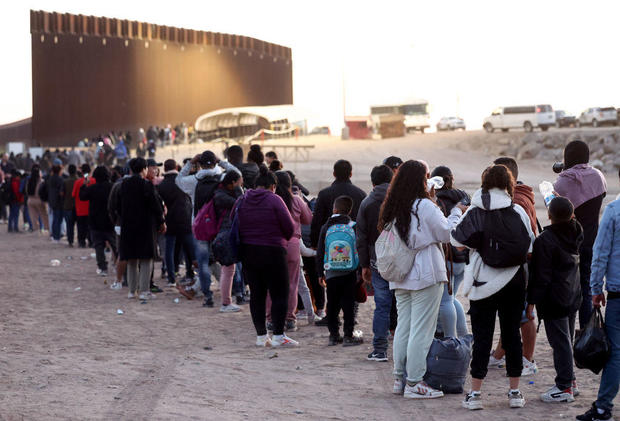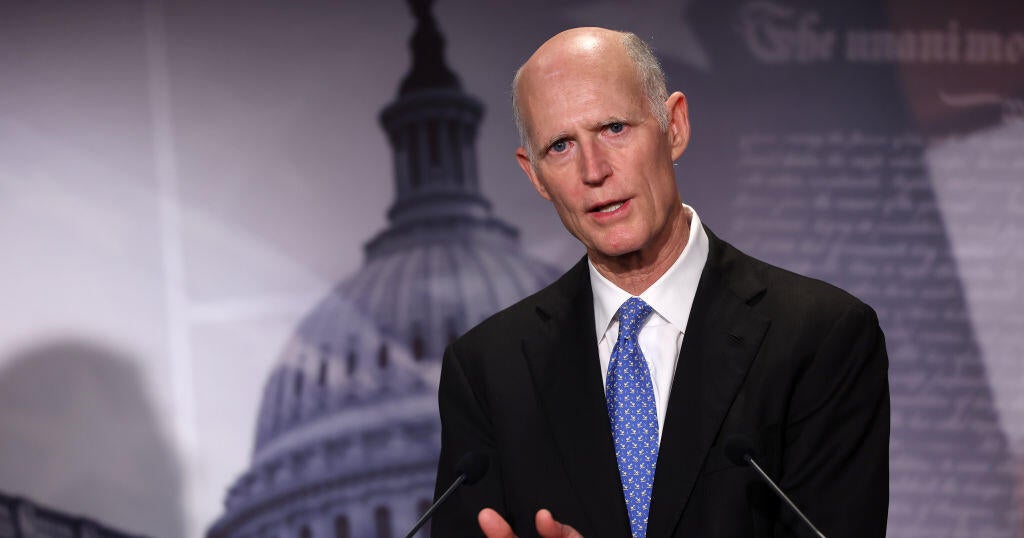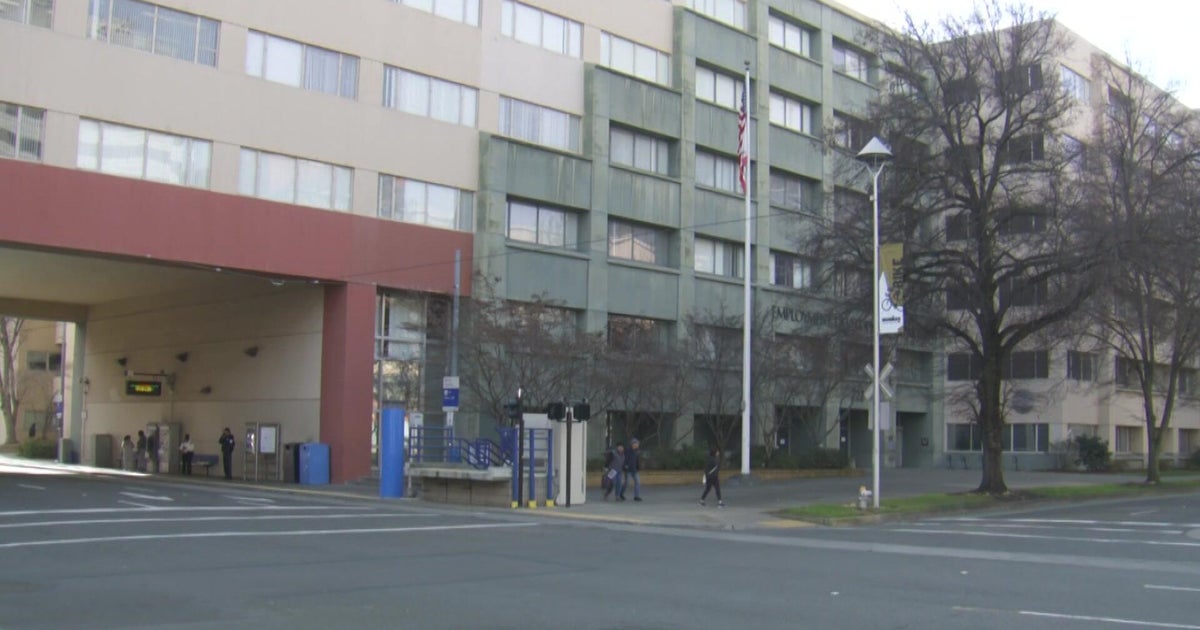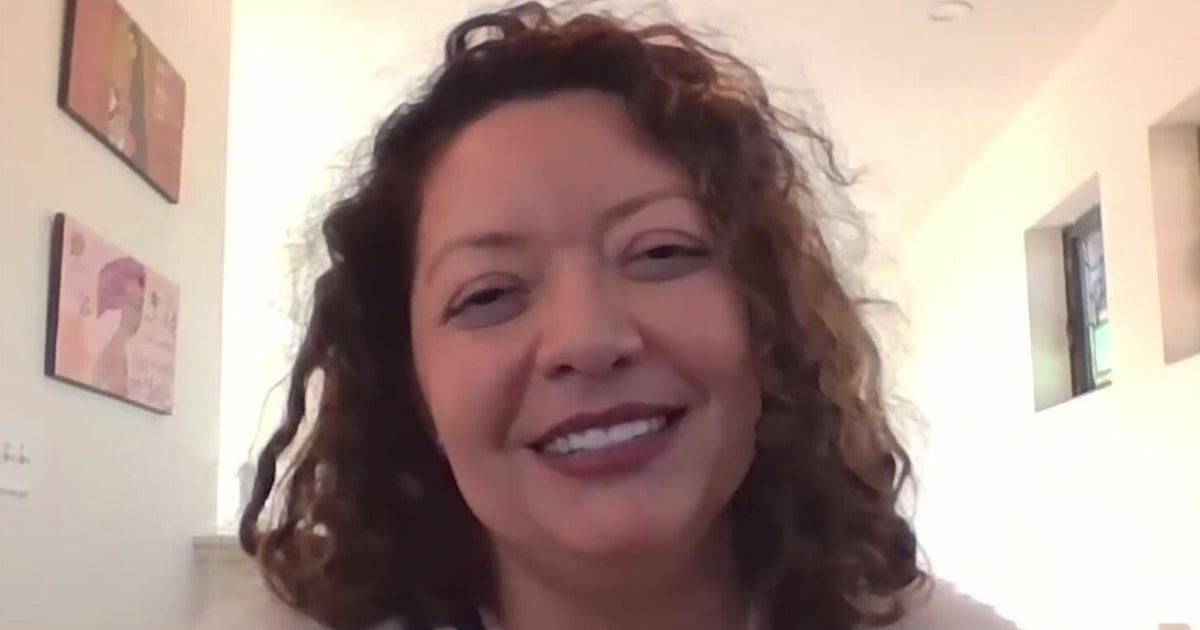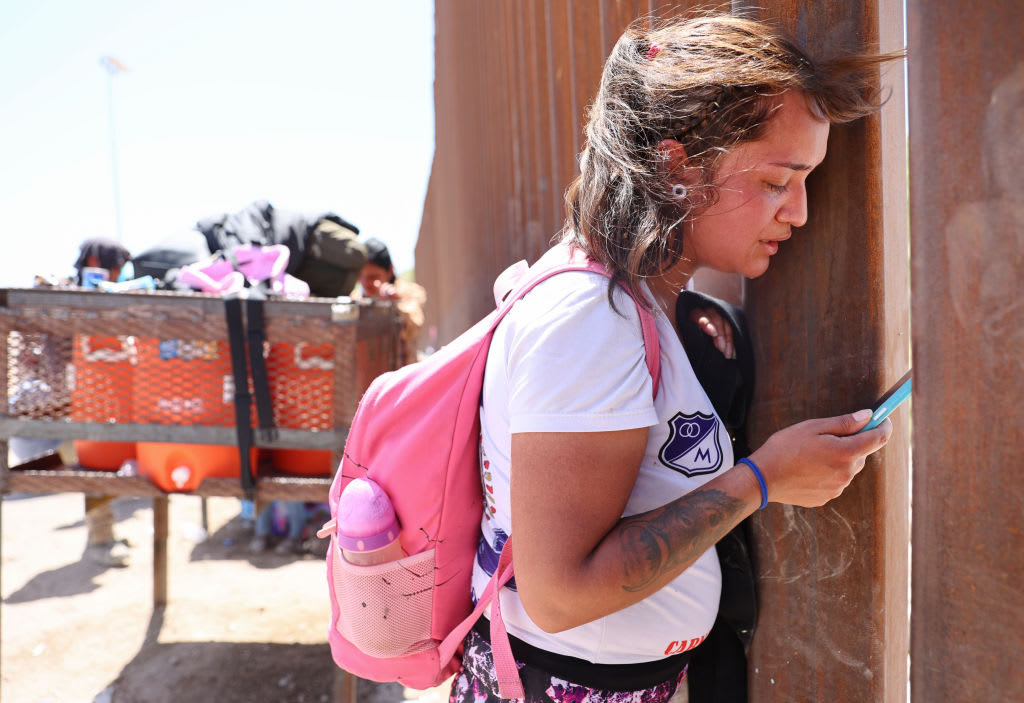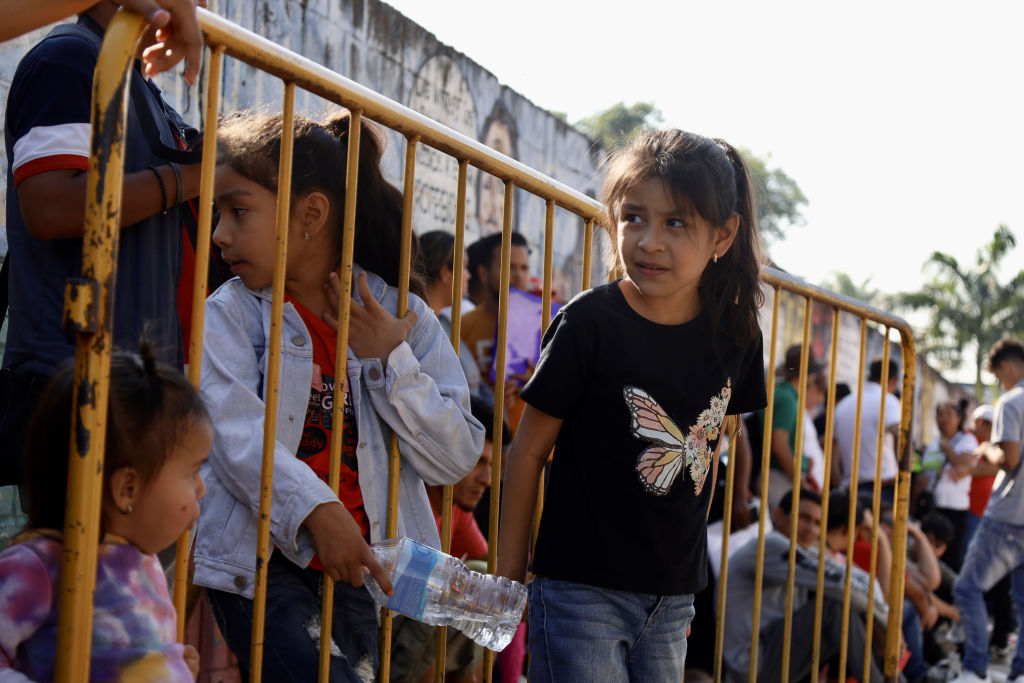Title 42 ends with 60,000 migrants waiting near U.S.-Mexico border
El Paso, Texas — An estimated 60,000 migrants were waiting near the U.S.-Mexico border as the Biden administration ended the Title 42 pandemic-era rule that has allowed authorities to expel those entering the country unlawfully, a top U.S. official told CBS News on Thursday.
Border Patrol Chief Raul Ortiz said his agency was preparing for some of the tens of thousands of migrants currently on the Mexican side of the U.S.-Mexico border to try to cross into the U.S. Title 42 expired at midnight Thursday.
"Upwards of 60,000 migrants we project are staging in and around the immediate border area," Ortiz said in an interview earlier in the day in El Paso. "So we're focused on ensuring that we're doing everything we can to allocate resources to address those flows."
In the lead-up to the end of Title 42, which was triggered by the expiration of the national COVID-19 public health emergency, border officials have already seen a spike in migration, recording around 10,000 daily apprehensions on some days this week.
As of Thursday, nearly 25,000 migrants were in Border Patrol holding facilities and tents, Ortiz said, despite the agency only having capacity on paper to hold several thousand individuals.
Ortiz said Border Patrol is working to reduce overcrowding in its holding facilities by rapidly releasing some migrants without court dates.
"We are over capacity in several of the sectors," Ortiz said. "And so we're working closely with our NGO partners, our communities to make sure that we release those migrants after they've been vetted and cleared, and they pose no significant threat to the community."
Ortiz attributed the current spike in border arrivals to smugglers "forcing some migrants to make some decisions that ultimately they probably shouldn't make" by spreading misinformation about U.S. policy, including on social media.
Despite the current challenges, Ortiz said he does not anticipate a "huge surge" in migrant crossings in the immediate aftermath of Title 42 ending.
Ortiz noted the transition away from Title 42 won't be abrupt, mentioning that on Wednesday only 19% of the migrants taken into custody were processed for expulsion under the public health order.
He also said the government is hoping to deter illegal crossings by deporting or returning migrants who don't qualify for asylum and prosecuting repeat border crossers.
In fact, the Biden administration has made it harder for migrants to qualify for asylum after Title 42.
Under a rule implemented Friday, migrants who cross the southern border without permission will be ineligible for asylum if they did not ask for protection in another country, like Mexico, on their way to the U.S.
Those unable to prove they qualify for an exemption to the rule will face deportation to their home country or Mexico, as well as a 5-year banishment from the U.S.
The ACLU and other groups challenged the new rule in federal court late Thursday, but the Department of Homeland Security defended it, saying in a statement that it "seeks to incentivize migrants to use lawful pathways instead of taking the dangerous journey to unlawfully cross the southern border. This rule responds to the elevated encounters we are experiencing at the border and is critical to creating an orderly process to seek protection in the United States at a time when Congress refuses to reform our broken immigration laws or provide the necessary funds to hire sufficient asylum officers and immigration judges to process claims in a timely manner."
The Biden administration is pairing the stricter asylum rules with increased opportunities for migrants to enter the country legally, including through an app for asylum seekers in Mexico and a program for Cubans, Nicaraguans, Haitians and Venezuelans with American sponsors.
Biden administration officials have said the policies will eventually reduce the historically high levels of border arrivals.
Nevertheless, Secretary of Homeland Security Alejandro Mayorkas said the policy changes will usher in a "difficult" period for his department. President Biden also said the situation would be "chaotic," at least for "a while."
Meanwhile, U.S. Immigration and Customs Enforcement (ICE) also announced late Thursday night that it was adding "several thousand" beds in its detention centers in response to the expiration of the COVID-19 public health emergency. The release did not mention the expiration of Title 42.
ICE noted that with the expiration of the public health emergency, it was ending COVID-19 testing and quarantine requirements for all detainees.
"These changes will increase the number of accessible beds in ICE's detention network and allow ICE to process detained noncitizens for intake more quickly," the agency wrote.

